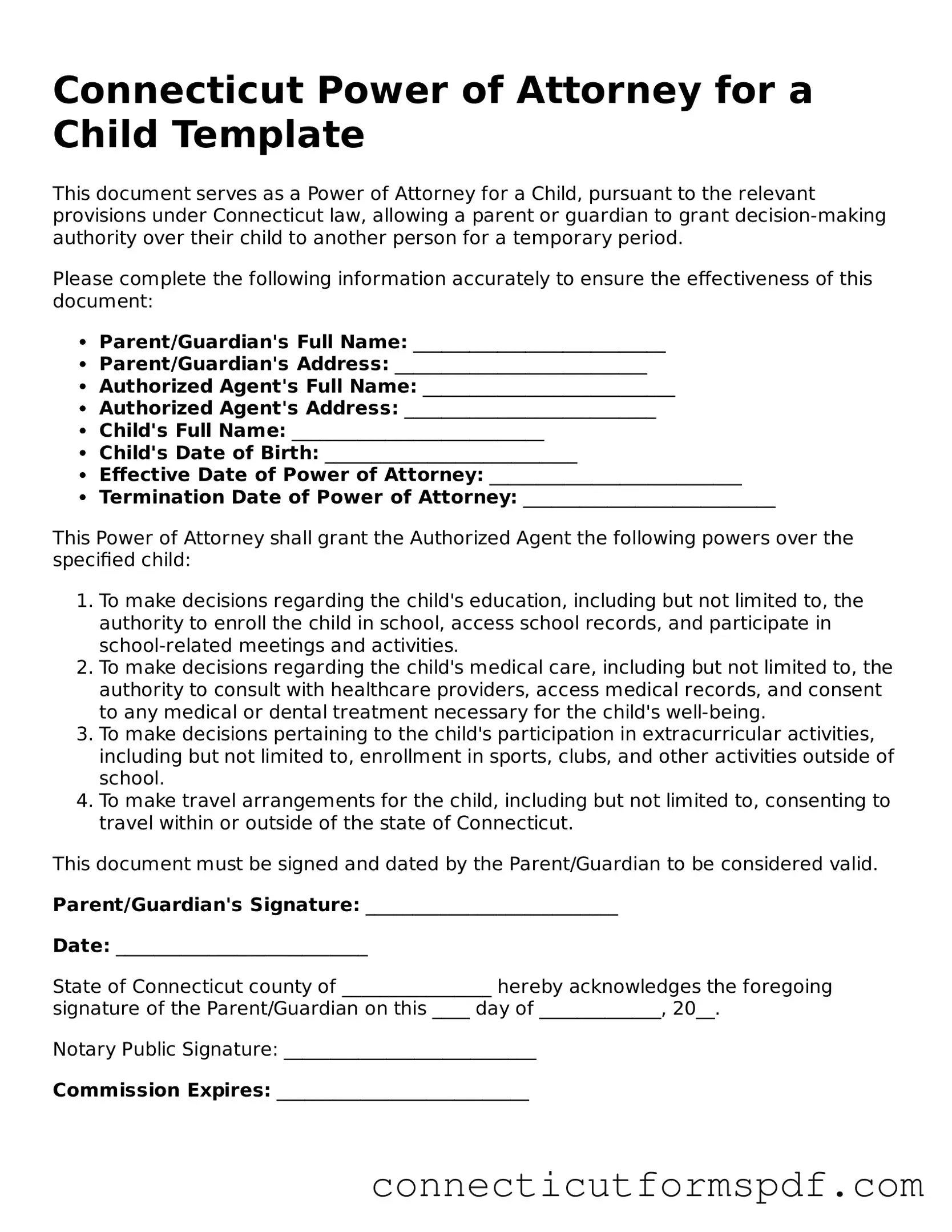Connecticut Power of Attorney for a Child Form
The Connecticut Power of Attorney for a Child form is a legally binding document that grants an adult the authority to make decisions on behalf of a child under certain circumstances. This document is essential for ensuring the child's welfare when the parents are unable to be present due to various reasons, such as illness or military deployment. To ensure the child's needs are met with the utmost care and attention, consider filling out this form by clicking the button below.
Launch Editor Now

Connecticut Power of Attorney for a Child Form
Launch Editor Now

Launch Editor Now
or
Click for Power of Attorney for a Child PDF
Your form is not complete yet
Edit and complete Power of Attorney for a Child online in just a few steps.